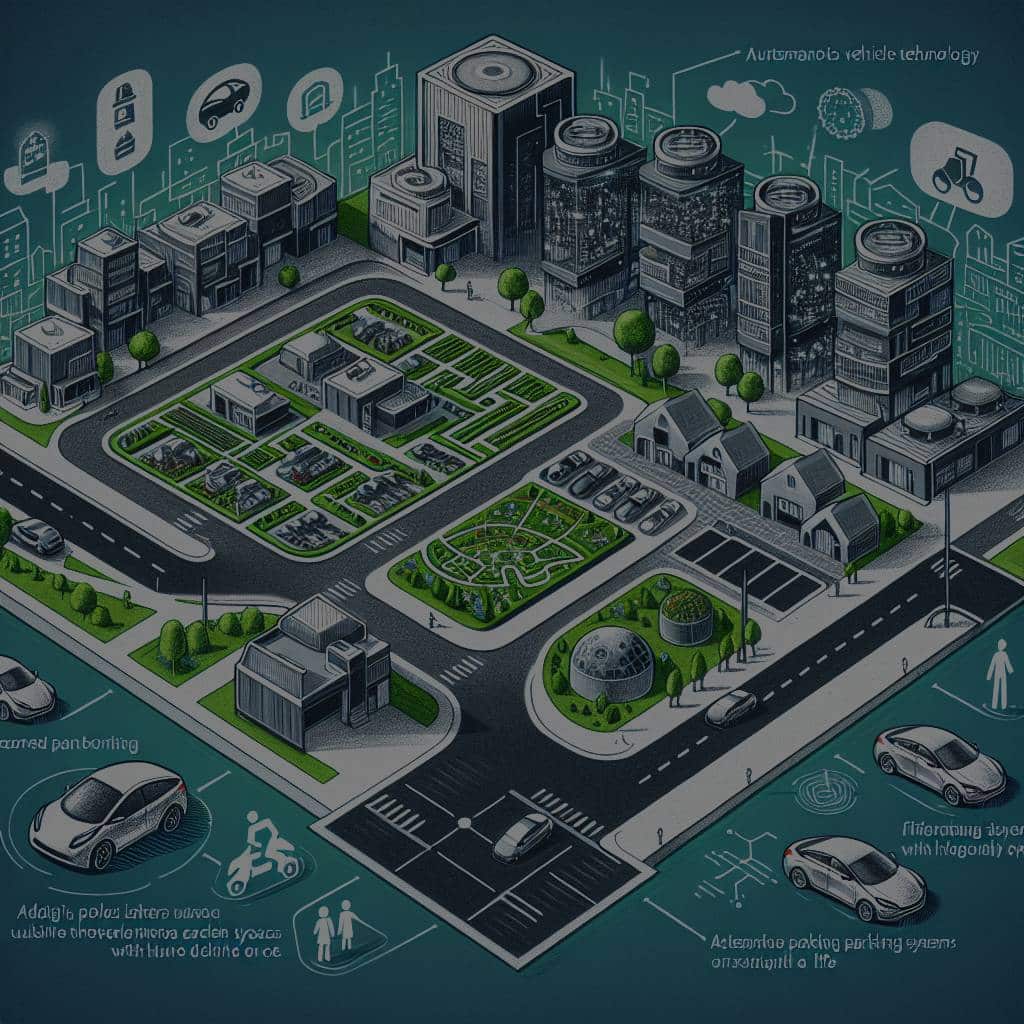What Is the Impact of Autonomous Vehicle Technology on Future Real Estate Planning?

As the march of technology continues unabated, we find ourselves at the precipice of a new era – the age of autonomous vehicle technology. This revolutionary leap promises to drastically alter the way we live. But have you ever wondered how this would affect the world of real estate planning? Would it be a boon or a bane? Let’s delve into this exciting and uncharted territory to find out.
Impact on Residential Real Estate
When we talk about autonomous vehicle technology, our immediate thought is its impact on transportation. Yet, it goes beyond that. It is poised to significantly reshape residential real estate as we know it.
Lire également : What Role Can Real Estate Play in Urban Agriculture and Food Security?
An essential aspect of residential real estate planning is location. Currently, most people prefer to live close to their workplaces, primarily to minimize their daily commute. However, autonomous vehicles can change this trend. With the advent of self-driving cars, the stress and time associated with commuting could be drastically reduced. This may lead to people moving to suburban or even rural areas, thereby causing a shift in the demand for city-center real estate.
With the growth of autonomous vehicles, we can also expect a reduction in the need for parking spaces. Today, residential buildings and homes are designed with ample parking spaces. However, autonomous vehicles, particularly those working on a share-based model, would mean fewer cars owned per family, leading to less need for parking.
A lire en complément : How to Utilize Geothermal Heating in Residential Real Estate Developments?
Moreover, the decreased reliance on public transport could pave the way for the redesigning of residential layouts. Spaces currently utilized for bus stops, metro stations, and the like could be recaptured for other uses.
Influence on Commercial Real Estate
If you think autonomous vehicles will only impact residential real estate, you’re mistaken. Commercial real estate is also likely to be affected quite significantly.
With the entry of autonomous vehicles, the whole concept of brick-and-mortar retail could undergo a major transformation. Traditional retail outlets rely on the fact that they are conveniently accessible to consumers. However, with self-driving cars, even far-off retailers could easily send their products to consumers. This would challenge the current premium placed on retail locations.
In the world of office space, the reduction of parking lots could free up substantial space. Companies might use this space for expansion or repurposing. It could even drive down rental prices, as less overall space would be needed.
Furthermore, the rise of autonomous vehicles could also spur the growth of warehouses and logistics centers. As delivery becomes cheaper and faster, the demand for well-placed logistics centers could increase.
Implications for Infrastructure Planning
It’s not just the residential and commercial sectors that would feel the effects of autonomous vehicle technology. Infrastructure planning, as a whole, would need to adapt to this new reality.
The advent of autonomous vehicles could lead to a reduced need for wider roads and more lanes. Self-driving cars are expected to be more efficient, thereby causing less traffic. This could change the way our cities are planned and might reduce the need for large, expansive highways.
Lighting requirements could also change. Currently, streetlights are essential for human drivers. Autonomous vehicles, however, rely on sensors and don’t require traditional lighting, potentially leading to significant changes in city lighting infrastructure.
Moreover, with fewer cars on the road and less need for parking, large swathes of land can be repurposed. This could lead to more green spaces or even entirely new areas for real estate development.
Autonomous Vehicles and Sustainability
The link between autonomous vehicles and sustainability is worth discussing. As we grapple with the effects of climate change, the sustainability factor of autonomous vehicles becomes crucial.
Self-driving cars are expected to be predominantly electric, leading to a reduction in greenhouse gas emissions. This could help cities achieve their sustainability goals, thus becoming an attractive feature for future real estate development.
Moreover, as mentioned earlier, the reduced need for parking spaces and lanes could lead to more green spaces. This not only aids in sustainability but also enhances the attractiveness of a location. Real estate developers would need to consider this in their planning.
Regulatory Impact
Lastly, we can’t discuss the impact of autonomous vehicle technology without considering the regulatory impact. Governments worldwide are already grappling with the challenge of regulating these new technologies.
The adoption of autonomous vehicles will likely necessitate new regulations regarding land use and zoning. For instance, if the need for parking decreases, zoning laws will need to be amended accordingly. This could mean a major shift in the way real estate planning is conducted.
Similarly, safety regulations will also come into play. Autonomous vehicles are not without their risks, and these need to be mitigated. This could influence the design and planning of both residential and commercial real estate.
While the full impact of autonomous vehicles on real estate planning is hard to predict, it’s clear that significant changes are on the horizon. As we step into this brave new world, it’s essential to consider these factors and plan accordingly. The future of real estate depends on it.
Smart Cities and Autonomous Vehicles
As we think about the integration of autonomous vehicle technology into our lives, one term that comes to mind is smart cities. These are urban areas that use different types of electronic methods and sensors to collect data, which are then used to manage resources and services efficiently. Autonomous vehicles fit seamlessly into this concept.
Autonomous vehicles use advanced sensor systems that allow them to understand their surroundings and navigate without human intervention. These sensors can also gather large amounts of data about the city, from traffic patterns to road conditions and more. This data can be used to enhance the efficiency of city services, guide urban planning, and even aid in real estate decisions.
Consider the potential impact on housing markets. Data collected by autonomous vehicles could provide valuable insights into traffic patterns, commuter behaviors, and peak travel times. This information could help real estate developers and city planners identify ideal locations for new residential or commercial developments.
Moreover, as part of a smart city, autonomous vehicles could also contribute to the creation of a more dynamic and flexible urban landscape. With fewer cars on the road and less need for parking, large swathes of land can be repurposed. This could lead to more green spaces or even entirely new areas for real estate development.
In essence, autonomous vehicles could become mobile data centers, providing real-time information that can drive smarter and more efficient real estate planning and urban development.
Conclusion
The full potential of autonomous vehicle technology is still unfolding, and the implications for future real estate planning are wide-ranging and complex. It is clear that this groundbreaking technology will bring significant changes to both residential and commercial real estate sectors, influencing everything from location preferences to the need for parking spaces.
Furthermore, the integration of autonomous vehicles within the broader vision of smart cities presents a new frontier in urban planning and real estate development. As these vehicles become ubiquitous, they will become an integral part of our urban landscapes and have a profound impact on how we design, plan, and live in our cities.
In the midst of these changes, it is crucial for real estate developers, city planners, and policymakers to stay abreast of these developments and be prepared to adapt. As we stand on the cusp of this exciting new era, one thing is clear: the future of real estate planning will be inextricably linked with the rise of autonomous vehicle technology. The challenge lies in harnessing these changes to build more sustainable, efficient, and livable cities.
